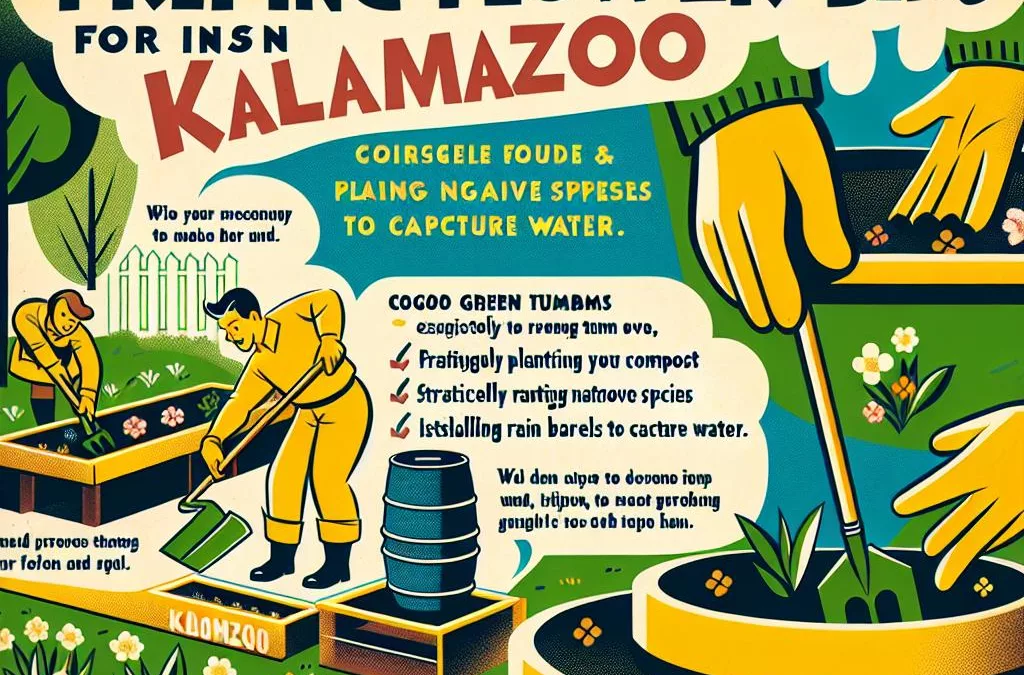Introduction
As spring approaches, Kalamazoo gardeners eagerly prepare to revive their flower beds after a long, harsh winter. Embracing eco-friendly gardening practices is not only beneficial for the environment but also vital for cultivating healthier and more vibrant flower beds. This guide offers practical and sustainable tips to get your Kalamazoo flower beds ready for the blooming season.
Assess and Clean Flower Beds
The first step to eco-friendly spring preparation is assessing your flower beds’ current state. Clear out any dead plant material, but consider composting these remnants instead of discarding them. This practice helps reduce waste and enriches your soil with organic matter when used as compost later.
While clearing, pay attention to leftover pests or disease indicators. Early identification of problems allows for natural remedies before they escalate. Manual removal of pests or the use of homemade organic sprays can maintain the ecological balance.
Soil Enrichment with Compost
Kalamazoo’s variable spring weather highlights the importance of nurturing soil health. Use compost made from kitchen scraps and yard waste. Compost not only reduces waste but significantly boosts soil fertility by providing essential nutrients naturally. Spread a rich layer of compost across your flower beds to ensure that your plants receive the best start possible.
Additionally, test your soil to understand its nutrient profile and pH level. This knowledge helps tailor soil amendments to meet specific plant requirements, ensuring vibrant growth.
Integrate Native Plants
To enhance eco-friendliness, consider incorporating native plants into your flower beds. Native plants are naturally adapted to Kalamazoo’s climate and soil conditions, reducing the need for water, fertilizers, and pest control. Examples include coneflowers and black-eyed Susans, which not only thrive effortlessly but also attract local pollinators, supporting biodiversity.
Effective Water Conservation
Water conservation is crucial in sustainable gardens. Embrace smart watering practices like drip irrigation and rainwater harvesting. Drip irrigation minimizes water wastage by directing water precisely to the plant roots. Collecting rainwater provides an eco-friendly water source that supports your garden during dry spells.
Mulching further conserves water by reducing evaporation and maintaining consistent soil moisture. Organic mulches like wood chips or shredded leaves provide additional nutrients as they decompose.
Avoid Chemical Interventions
The allure of rapid growth often tempts gardeners toward chemical fertilizers and pesticides. However, these chemicals can harm beneficial insects and degrade soil quality. Opt for organic alternatives like bone meal or homemade insecticidal soaps to maintain an eco-friendly flower bed and safeguard your garden’s ecosystem.
Embrace an approach that requires less intervention by choosing pest-resistant plant varieties and rotating crops to minimize pest buildup.
Conclusion
With these eco-friendly tips, your Kalamazoo flower beds will be ready to flourish beautifully under the spring sun. By integrating native plants, conserving water, enriching soil, and making thoughtful plant choices, you contribute to a healthier garden and environment. Happy gardening season!
For more eco-friendly gardening tips, visit Landscaping and Hardscaping Services, and Lawn Mowing Services for all your spring preparation needs!

